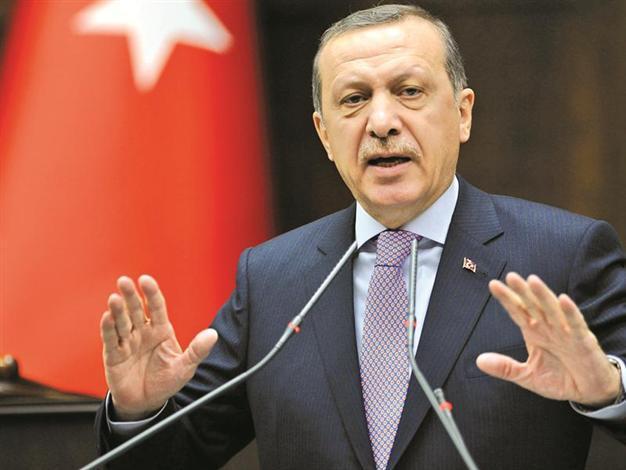Despite US opposition, oil trade with Iraq is legal, PM Erdoğan says
Enis Berberoğlu BRATISLAVA / Hürriyet
 Turkey will continue its oil trade with the Kurdistan Regional Government (KRG) in northern Iraq, Turkish Prime Minister Recep Erdoğan has said, while confirming the trade as legitimate.
Turkey will continue its oil trade with the Kurdistan Regional Government (KRG) in northern Iraq, Turkish Prime Minister Recep Erdoğan has said, while confirming the trade as legitimate.Turkey is supporting its neighbor in its need to trade and buying petrol in return, he said during an interview with reporters on his way back from a mission to Eastern Europe yesterday. Below are his responses to questions from journalists.
Is Turkey signing a broad energy agreement with northern Iraq?
The central government wants to keep everything under its control. At this point they say they could do anything if the regional administration in northern Iraq does not withdraw from such business.
“We would give gasoline if they want, we would give diesel if they want,” they say.
But we do not have a [stance] about this [dispute], despite the American inclusion.
America says you are doing wrong.
No, we believe this is included in the [Iraqi] constitution. Because northern Iraq has an authorization of right on an 18 percent structure it might use this authorization with any country. And we are its neighbor. It has such a need. As their neighbor, we are helping them in meeting this need. In return we buy petrol or such things.
What are your thoughts on Foreign Minister Ahmet Davutoğlu’s response to Iraqi PM Noiri al-Maliki?
Maliki began to go too far. Davutoğlu’s remarks were also very hard. When Maliki sent such a message I decided not to respond him, but Davutoğlu did instead. This was Davutoğlu’s response.
Have you had any news from Iraqi President Jalal Talabani?
We only know that his situation is serious. Some say it is serious, some say not.
Will the opposition in Syria talk with President Bashar al-Assad?
The statements by [Syrian National Council Head Sheik Ahmad] Moaz al-Khatib were twisted. Al-Khatib says they would meet a government that does not include al-Assad. Not the one with al-Assad. But they have twisted it and made it look like a contact with al-Assad. Al-Khatib by no means accepts al-Assad, he says they wouldn’t talk. Such a thing cannot happen. But they might sit at the table with the other remnants of the regime. And this is a reflection of the Geneva talks.
And the [Democratic Union Party] PYD is restless because the opposition has started squeezing the PYD. The PYD has a serious problem particularly in Qamishli and Hassake. The opposition is continuing this process [of pressure] very well. The regime is losing power in terms of air control. Of course this does not mean that they do not have any air control.
Some say Turkey should play pioneer role in persuading allies?
Our initial approach about going into such a tour to persuade allies has been talking with the United Nations, the Arab League, the Organization of Islam Conference, Russia and China. But we could not achieve the required result.
Even the Arab League is not yet giving enough support. The U.N. Security Council had unfortunately not taken bunch of steps until its latest meeting in Doha.
It is obvious who donated money at the Doha meeting: the Gulf countries and Saudi Arabia. The sum is said to be $1.3 billion as far as I remember, and a $600 million portion was promised by Saudi Arabia and Qatar alone. But despite all this, I tell you that al-Assad will go. He is not here to stay. The opposition powers are working with all they have today. After the Doha event, the support for them will grow continuously and we are continuing our humanitarian support. Our open gate policy will continue. Our spending so far has surpassed $600 million. In the upcoming period we will keep on locating [refugees] in houses or camps.
How will the process work during a second Peace and Democracy Party (BDP) mission to İmralı?
We will talk on the issue with colleagues tomorrow [Feb. 8]. In the meantime, maybe the MİT chairman might give a talk. He will inform us about the issue.
You had set a March deadline for the work on the new Constitution.
This is the timing for the Parliamentary speaker. We did not set a deadline but this cannot be limitless. Keeping it limitless means diluting the process.
















